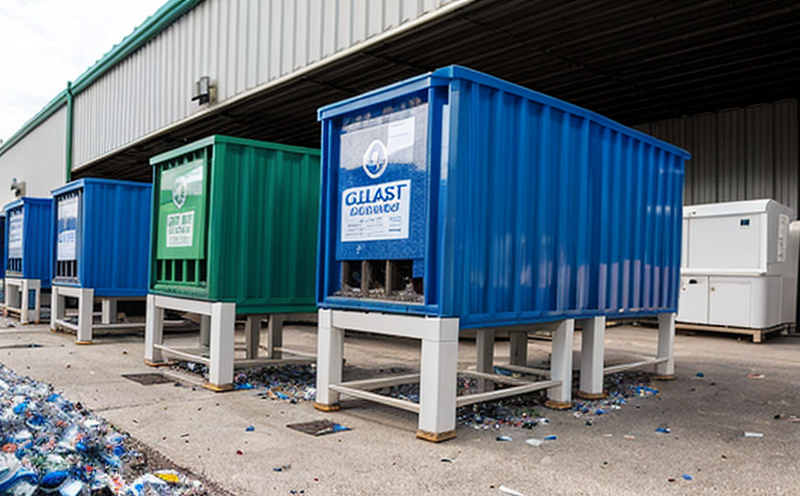ISO 12833 Chloride in Glass Waste Materials
The ISO 12833 method is a globally recognized standard used to determine chloride content in glass waste materials. This test plays a critical role in ensuring the quality and safety of recycled glass products, which are increasingly being incorporated into construction, manufacturing, and other sectors.
Chloride contamination can lead to corrosion issues when recycled glass is used in certain applications. By accurately measuring chloride levels, this testing ensures that only safe materials enter processing streams, thus preventing potential problems downstream. This standard is particularly important for industries dealing with waste management, recycling facilities, and manufacturers of products made from recycled glass.
The process involves the digestion of glass samples followed by a potentiometric titration or an ion-selective electrode method to measure chloride ions. The accurate quantification of chloride not only aids in compliance but also supports sustainable practices by ensuring that only suitable waste materials are processed into new products.
Our laboratory specializes in providing precise and reliable testing services for this standard, leveraging state-of-the-art equipment and experienced personnel. We ensure that all tests are conducted according to the latest guidelines set forth by ISO 12833, delivering accurate data that can be trusted by quality managers, compliance officers, R&D engineers, and procurement teams.
Understanding the importance of this test in the context of waste management and recycling is crucial. By adhering strictly to international standards like ISO 12833, we contribute significantly to environmental sustainability efforts.
Applied Standards
| Standard Reference | Description |
|---|---|
| ISO 12833:2009 | Determination of chloride in glass waste materials by potentiometric titration or ion-selective electrode method. |
| ASTM D6547-13 | American Society for Testing and Materials standard for determination of chloride content in recycled glass. |
The ISO 12833 standard is widely recognized and provides a robust framework for measuring chloride levels, ensuring that the results are consistent across different testing facilities. While ASTM D6547 offers additional insights into the recycling process, ISO 12833 remains the primary reference in our laboratory.
Using these standards ensures that we provide accurate and reliable data, which is essential for meeting regulatory requirements and ensuring product quality.
Scope and Methodology
| Scope | Description |
|---|---|
| Determination of chloride in glass waste materials. | This includes the digestion process, sample preparation, and measurement techniques using potentiometric titration or ion-selective electrode method. |
| Application to recycled glass products. | The standard supports sustainable practices by ensuring that only suitable waste materials are processed into new products. |
The methodology involves several key steps: sample preparation, digestion of the samples in a nitric acid solution, and subsequent measurement using either potentiometric titration or ion-selective electrode method. The accuracy of these methods ensures reliable chloride content data.
Our laboratory follows a rigorous process to ensure that every test adheres strictly to ISO 12833 guidelines. This not only guarantees accurate results but also helps in meeting regulatory requirements and ensuring product quality.
Benefits
- Ensures Product Quality: By accurately measuring chloride levels, we ensure that only suitable waste materials are processed into new products, thus maintaining high-quality standards.
- Enhances Sustainability: The accurate quantification of chloride supports sustainable practices by preventing potential corrosion issues when recycled glass is used in certain applications.
- Achieves Regulatory Compliance: Adherence to international standards like ISO 12833 helps our clients comply with regulatory requirements and avoid penalties.
- Supports Decision-Making: Reliable data from this test aids quality managers, compliance officers, R&D engineers, and procurement teams in making informed decisions about waste management practices.
The precision of the results obtained through our testing ensures that all parties involved have confidence in the recycled glass products they produce or purchase. This enhances trust within the supply chain and supports broader sustainability goals.





